La Maison symphonique de Montréal
Kent Nagano and the OSM's dream of bringing this hall to Montreal and Quebec has been made possible by the unfailing support of long-term partners.
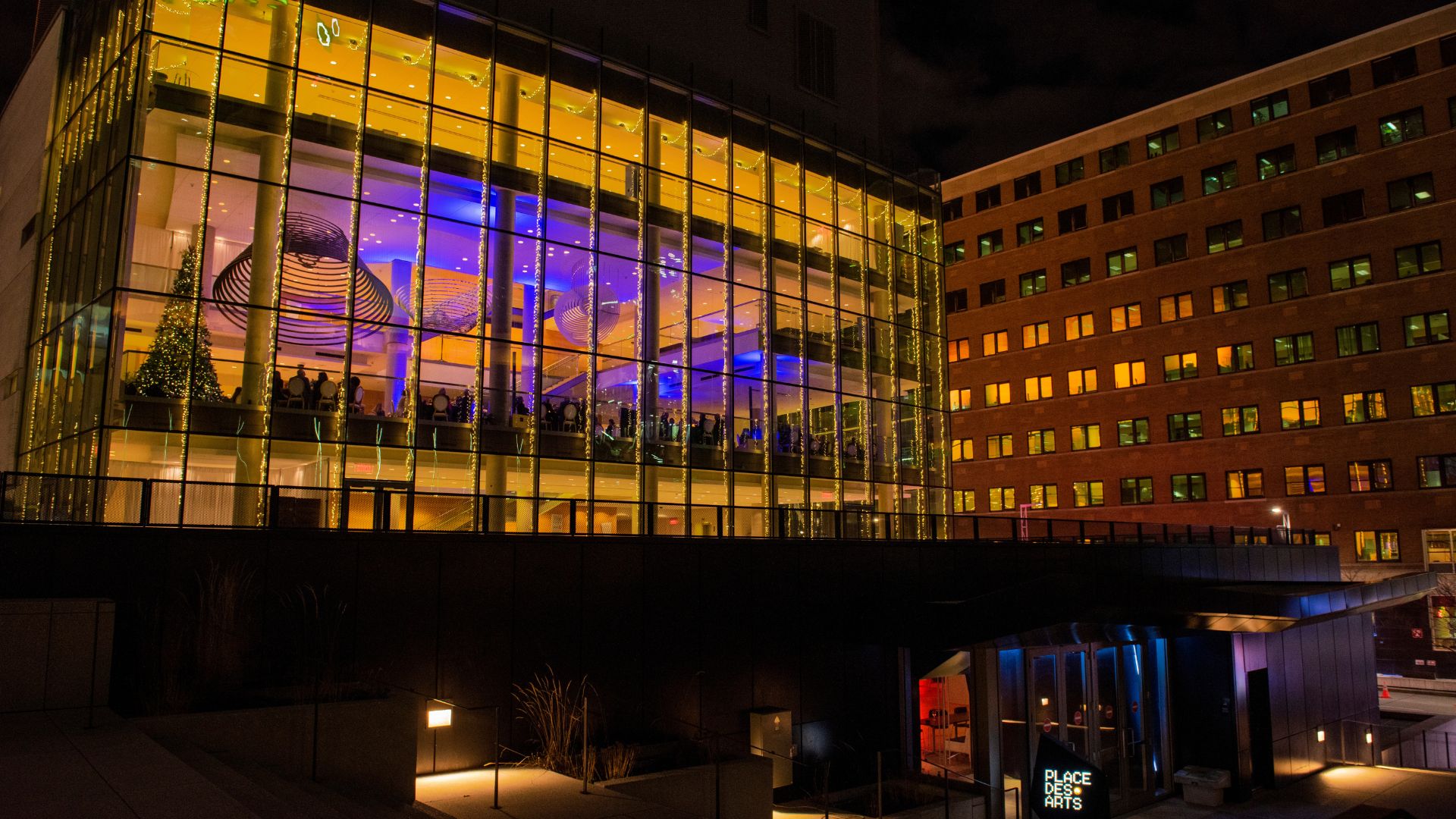
A bit of history
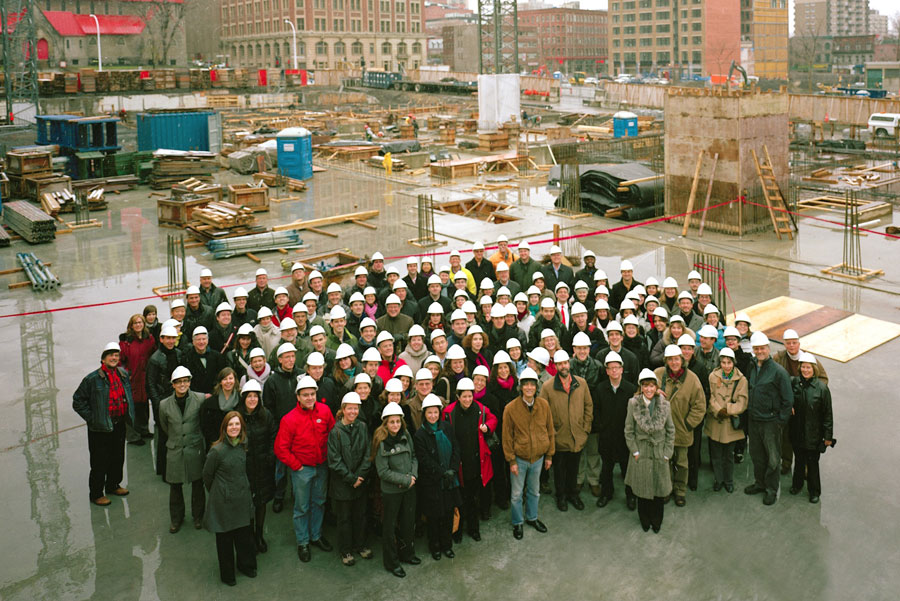
Genesis of the project
The Maison symphonique was born out of a collaboration between the OSM, the Place des Arts, the Government of Quebec, and the private sector. In 2005, the Government of Quebec commissioned the firm Artec, headed by Tateo Nakajima, to develop the acoustics and decorative layout of the future concert hall, construction of which was officially announced in 2006. The architectural design was entrusted to a consortium made up of Diamond and Schmitt Architects and Ædifica architects. Between 2009 and 2011, the Maison symphonique gradually emerged in the heart of the Quartier des spectacles, heralding magnificent prospects for Montreal’s Place des Arts.
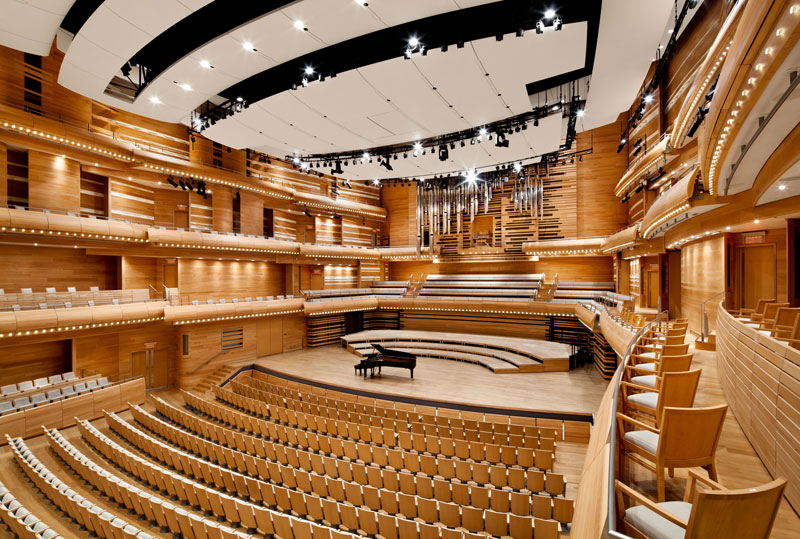
Inauguration of the OSM’s residence
The Maison symphonique, home to the OSM, was inaugurated on September 7, 2011. The Orchestra, conducted by Kent Nagano, performed Beethoven’s Ninth Symphony, as well as works from Quebec. Since then, the hall’s exceptional acoustics have been acclaimed by the international music community, bringing pride to Montreal and attracting conductors and artists from all over the world.
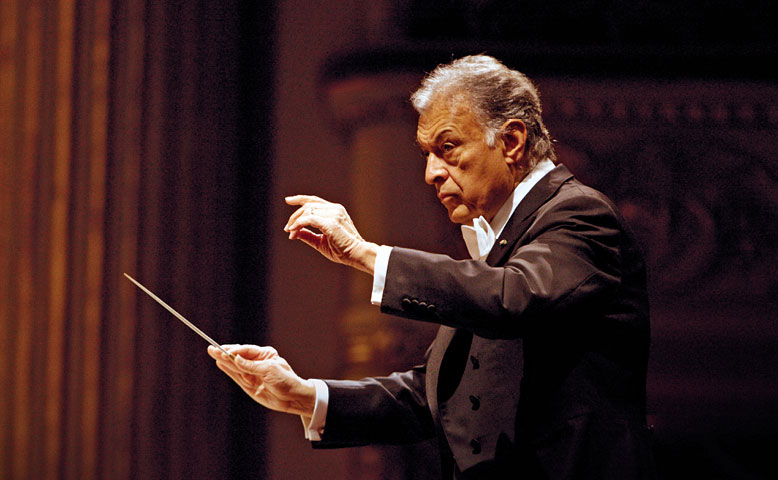
Guest conductors and artists
Since 2011, the OSM has welcomed illustrious conductors such as Zubin Mehta, Christoph Eschenbach, and Gustavo Dudamel, as well as brilliant soloists including Martha Argerich, Evgeny Kissin, Hilary Hahn, Maxim Vengerov, Barbara Hannigan, Bruce Liu, Daniil Trifonov, and Marie-Nicole Lemieux to the Maison symphonique. The OSM has also invited prestigious orchestras such as the Los Angeles Philharmonic and Budapest Festival Orchestra, making the Maison symphonique a popular venue for the greatest representatives of the international classical scene.
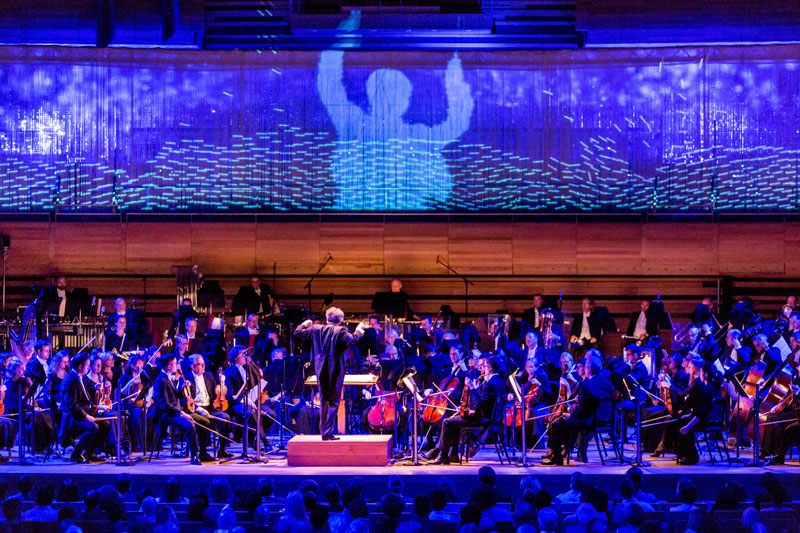
Ever more innovative concerts
In 2011, Kent Nagano initiated a collaboration between the OSM and storyteller Fred Pellerin for the holiday season that has since then become a tradition. The Maison symphonique’s captivating setting has inspired the OSM to develop innovative ideas, such as the “Organ and Space” concert in collaboration with the Canadian Space Agency, during which the audience was in contact with the International Space Station via video link, accompanied by music on the Grand Orgue Pierre-Béique. Musical and theatrical improvisation matches have also taken place, as well as the Symphonie montréalaise presented in collaboration with Samy Moussa and Moment Factory, the chamber opera Chaakapesh written in French, English, Cree, Innu, and Inuktitut, and celebrated pop concerts featuring bands including Les Cowboys Fringants, Half Moon Run, and IAM that have drawn massive crowds to the Maison symphonique.
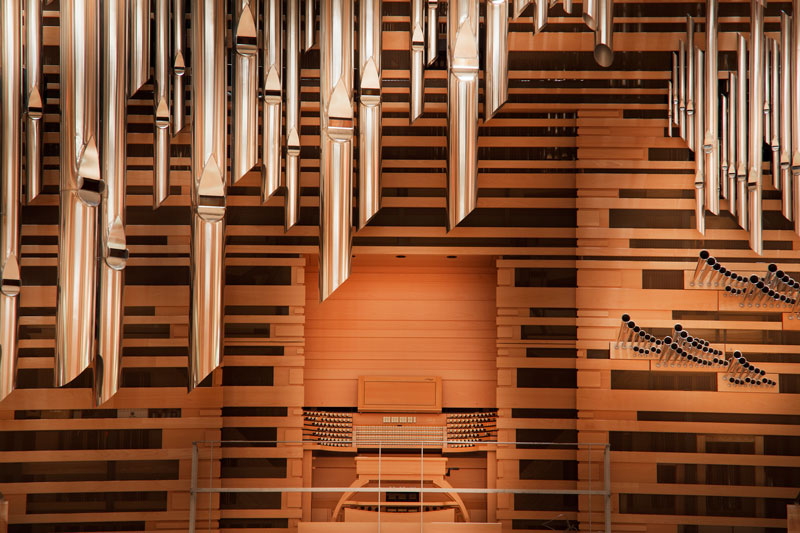
The Grand Orgue Pierre-Béique
Inaugurated in 2014, the Grand Orgue Pierre-Béique has since then become an intrinsic part of the Maison symphonique. Olivier Latry, the OSM’s organist emeritus, played a crucial role in designing and installing the organ. Jean-Willy Kunz, the OSM’s organist-in-residence, promotes the organ by creating diverse and daring programming that showcases its capabilities.
The Grand Orgue Pierre-Béique was generously donated to the OSM by Jacqueline Desmarais.
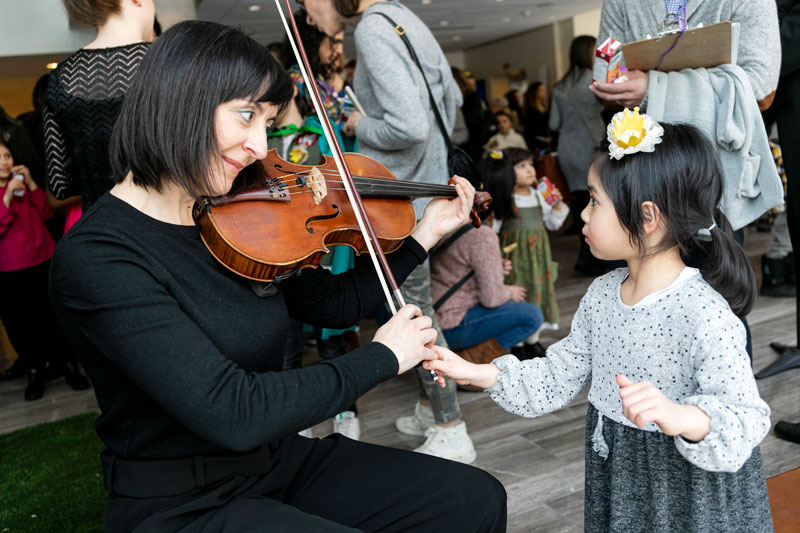
A venue for all audiences
The OSM has made the Maison symphonique a space open to everyone, a place of surprise, wonder and learning. With concerts for young people, events designed for children with special needs, the Virée classique, the Éclatés concerts, the Pop series, folklore encounters, premieres by local composers, and much more, the OSM has made it possible to bring together a wide variety of audiences in the Maison symphonique.
Quelques moments forts vécus à la Maison symphonique
The Hall
Capacity
- 2,100 seated spectators
- 200 seats available in the choir section behind the stage
Stage
Can accommodate up to 120 musicians and a choir of 200 singers
Sound
The auditorium meets N-1 noise criterion, meaning that the background noise level outside the auditorium is imperceptible to the human ear inside.
Materials:
All of the auditorium’s surfaces are paneled with beech wood from Quebec, used for both its acoustic and aesthetic properties.
Organ
The Grand Orgue Pierre-Béique is an integral part of the auditorium, with the layout of the pipes constituting the meeting point between architecture and music.
Sustainability
The auditorium is LEED (Leadership in Energy and Environmental Design)-certified, which recognizes how a building’s performance reduces its environmental footprint.
Auditorium
Primarily designed for acoustic musical performances that can accommodate the full range of chamber and symphonic repertoire.
Architecture: Shoebox design:
- Relatively narrow, high and long form
- Seating on several balcony levels surrounding the stage
- Optimized design: wall angles, curves, column layout and the shape of the balcony facades
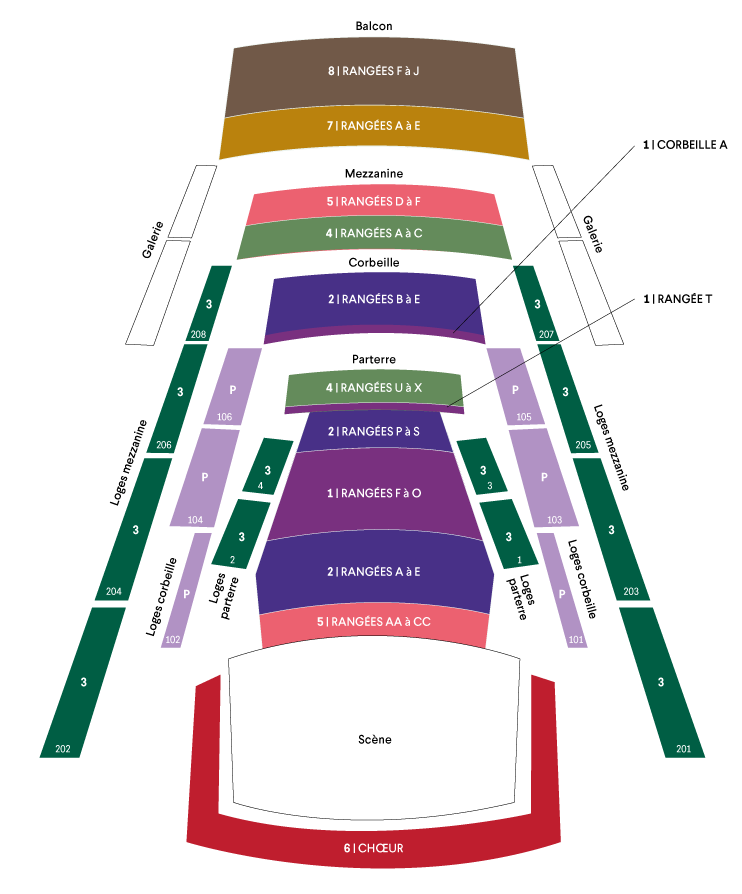
Virtual tour of the Maison symphonique
With its warm woodwork and exceptional acoustics, the Maison symphonique de Montréal has successfully established itself on the Montreal landscape. With its 2100 seats, this international venue is a meeting place where young and old, amateurs and music lovers alike, come to enjoy the pleasures of music.
